 As 2011 begins, the industry establishment (i.e., the Manufactured Housing Institute – MHI) and HUD continue to promote a “when/where required” federal fire sprinkler standard. Before this effort moves any further, though, industry members should be asking themselves “Why?’Why are the industry establishment and HUD so intent on saddling manufacturers and consumers with a new and extremely costly sprinkler standard when production remains mired in a 12-year tailspin, consumers are unable to obtain financing as it is and every other segment of the housing industry is actively opposing the imposition of any sort of sprinkler mandate? And this does not even get to the unique problems that retailers and community owners will face if sprinklers are required for the homes they sell and that are placed in the communities they manage — showing again the need for their own distinct national representation. Consequently, it is important to cut through the fog and clutter so that the industry grassroots understands that a when/where required federal sprinkler standard is not only a bad idea, but a bad idea that the law does not permit – that there is no such thing as a “conditional” federal standard.
As 2011 begins, the industry establishment (i.e., the Manufactured Housing Institute – MHI) and HUD continue to promote a “when/where required” federal fire sprinkler standard. Before this effort moves any further, though, industry members should be asking themselves “Why?’Why are the industry establishment and HUD so intent on saddling manufacturers and consumers with a new and extremely costly sprinkler standard when production remains mired in a 12-year tailspin, consumers are unable to obtain financing as it is and every other segment of the housing industry is actively opposing the imposition of any sort of sprinkler mandate? And this does not even get to the unique problems that retailers and community owners will face if sprinklers are required for the homes they sell and that are placed in the communities they manage — showing again the need for their own distinct national representation. Consequently, it is important to cut through the fog and clutter so that the industry grassroots understands that a when/where required federal sprinkler standard is not only a bad idea, but a bad idea that the law does not permit – that there is no such thing as a “conditional” federal standard.
First some background. There are two proposed “when/where required” sprinkler standards pending before the Manufactured Housing Consensus Committee (MHCC) (albeit “tabled” for the moment) — one submitted by HUD and the other by MHI. Both, on their face, would apply whenever “a manufacturer elects to install a fire sprinkler system or a state or local authority … requires that a fire sprinkler system be installed for all detached single family dwellings and manufactured homes” — thus the “when/where required” label (although that label is misleading). Under the HUD proposal, manufacturers would be required to comply with the National Fire Protection Association’s (NFPA) 13D “Standard for the Installation of Sprinkler Systems … in Manufactured Homes.” Under the MHI proposal, manufacturers would be held to either the NFPA 13D standard or an alternative set of prescriptive requirements incorporated in a new proposed section of the HUD standards. Based on MHARR research, however, HUD does not have authority to adopt such a conditional standard.
Up to this point, MHARR has systematically debunked all the various explanations and excuses that have been offered for such a standard in a series of articles, reports and MHCC submissions which have exhaustively demonstrated that: (1) the existing HUD standards have been effective; (2) the predicted “tidal wave” of varying standards is largely a myth, as most jurisdictions that have considered the issue have rejected the 2009 International Residential Code (IRC) sprinkler mandate; (3) that state and local sprinkler requirements, in any event, should properly be preempted by the existing HUD fire safety standards consistent with the expanded federal preemption of the Manufactured Housing Improvement Act of 2000; (4) that a “when/where required” federal sprinkler standard would ultimately be applied to all HUD Code homes, either through “interpretation” by a future HUD administration or through a court or administrative challenge by sprinkler proponents demanding that HUD enforce the standard; (5) that a federal standard would subject sprinkler installations and operation to the costly record-keeping, notice and recall provisions of Subpart I, thereby increasing manufacturer compliance costs – ultimately passed to consumers – even further; and (6) that such a standard could increase the cost of a manufactured home by as much as $4.00 a square foot, thereby excluding even more lower and moderate-income consumers from the manufactured housing market.
But, even if all of this was not sufficient to show that a “when/where required” federal sprinkler standard would be a bad move for both the industry and consumers, there is one more reason why HUD cannot adopt such a standard – the law gives it no authority to do so.
Fire is a “safety” issue* Thus, the existing HUD Code fire standards are entitled “Fire Safety.” But “manufactured home safety” has a specific meaning under the law. The National Manufactured Housing Construction and Safety Standards Act of 1974 defines “manufactured housing safety” as “the performance of a manufactured home in such a manner that the public is protected against any unreasonable risk of … accidents . or any unreasonable risk of death or injury to the user” of the home. (Emphasis added). This definition was not changed by the 2000 law.
Putting aside the antiquated reference to manufactured home “accidents,” the essential prerequisite to the adoption of a federal manufactured home safety standard is the existence of an “unreasonable risk” of injury or death to the resident of a manufactured home. The existence of such an unreasonable risk, moreover, must be determined by HUD, as the agency charged by federal law with developing, maintaining and enforcing the federal standards.
Under this definition, there either is an “unreasonable risk” of injury or death as determined by HUD, or there is not. If there is an “unreasonable risk,” HUD can adopt a federal safety standard to remedy that risk. If there is not an “unreasonable risk,” HUD cannot adopt such a standard — period.
In the case of fire sprinklers, HUD has never determined, claimed or even implied that the absence of fire sprinklers creates an “unreasonable risk” of injury or death in manufactured homes that otherwise comply with the existing HUD fire safety standards. Indeed, the existing HUD fire safety standards – which do not require the use of sprinklers – state that, if followed, they “will ensure reasonable fire safety to the occupants” of manufactured homes. (Emphasis added). And this has been borne out by data gathered by both private and government entities. Consequently, if the current federal standards ensure “reasonable” fire safety without sprinklers – and they do – then, per se, there is no “unreasonable risk” to be remedied by sprinklers, And if there is no “unreasonable risk” to be remedied by sprinklers, then there is no valid prerequisite for a federal fire sprinkler standard, even if a conditional federal standard would be “helpful” to some manufacturers (which, coincidentally, also shows why the existing federal fire safety standards should preempt state and local sprinkler standards).
Some have argued that the “horse is already out of the barn,” because states and localities that have adopted sprinkler requirements have concluded for themselves that there is an “unreasonable risk.” Another version of this argument goes that the IRC committee, by establishing a sprinkler mandate, has already made such a determination. But as the Department itself has been quick to point out in other contexts, HUD cannot delegate the fundamental statutory duties and responsibilities imposed on it by federal law to either a private body, such as the IRC committee, or to state or local officials acting under non-federal grants of authority. If there is a finding to be made, HUD must make it — it cannot subcontract that federal responsibility to someone else. And since HUD has made no such finding — and could not legitimately make any such finding — there is, again, no prerequisite for a federal sprinkler standard.
In MHARR’s view, a “when/where required” federal sprinkler standard would not only be bad policy, but would not pass legal muster and should be dropped altogether,
MHARR is a Washington D.C.-based national trade association representing the views and interests of producers of federally-regulated manufactured housing.



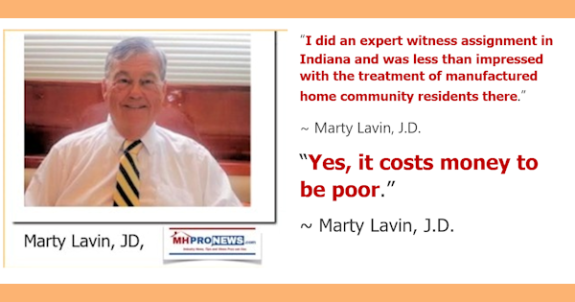
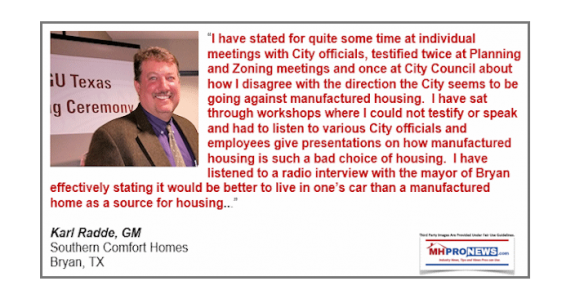
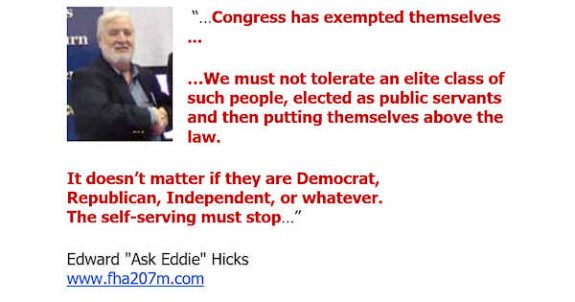
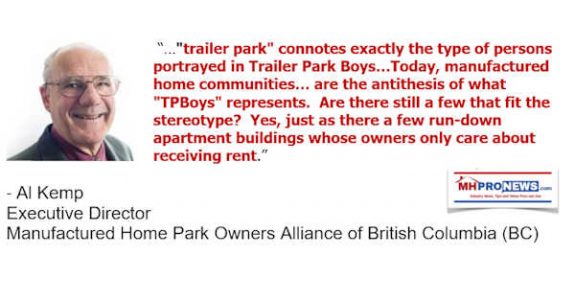
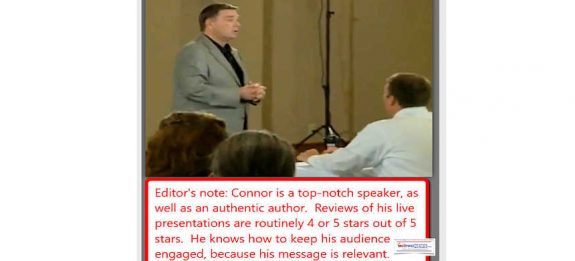
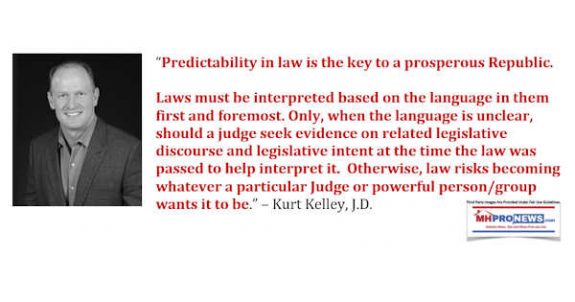
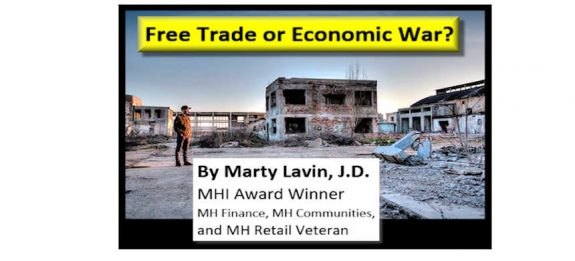
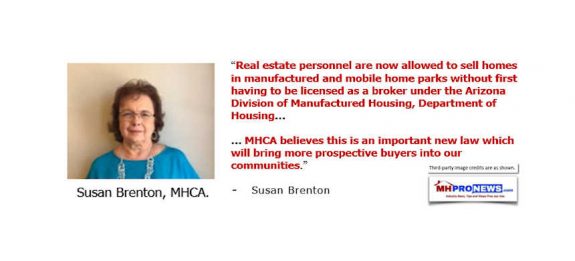
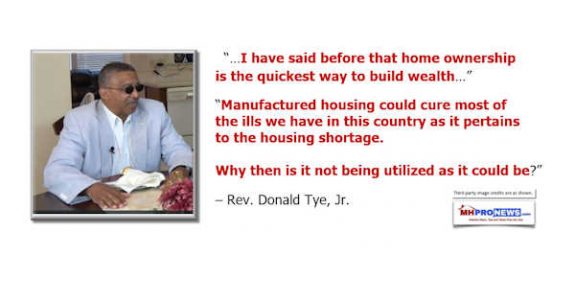
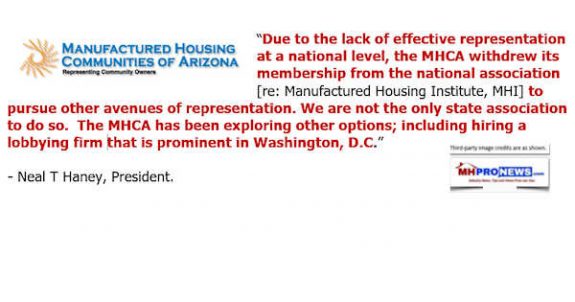
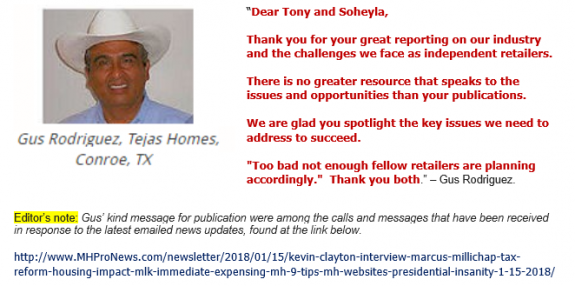
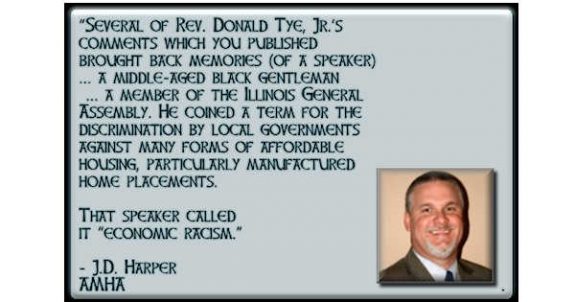
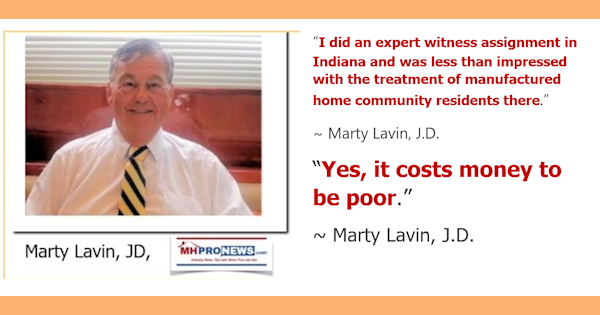
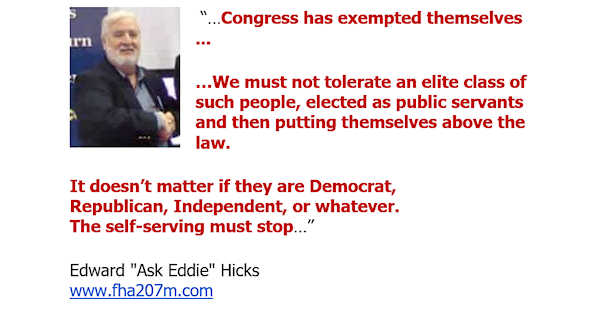
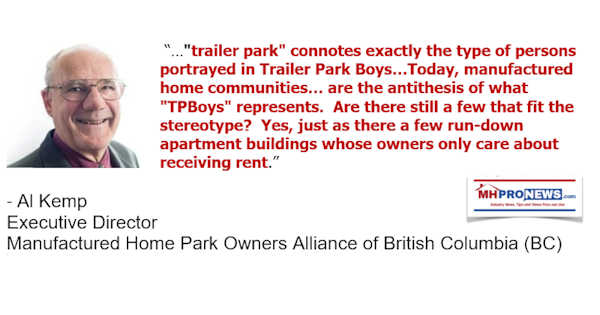
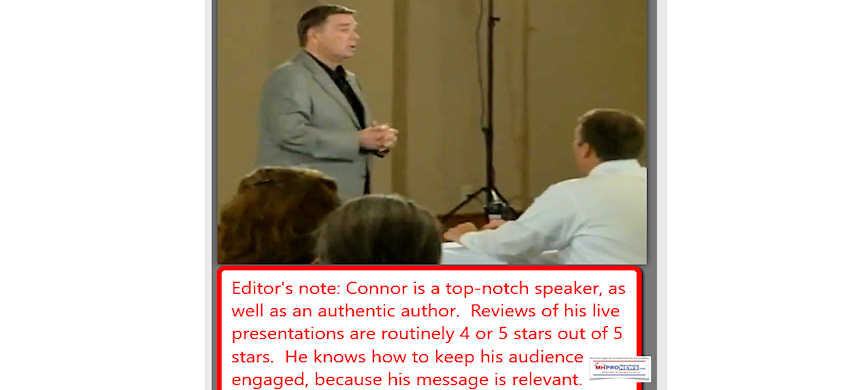
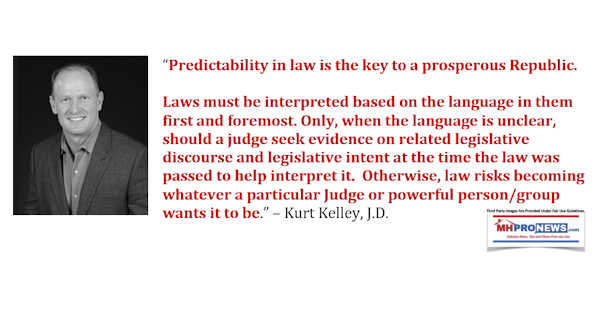
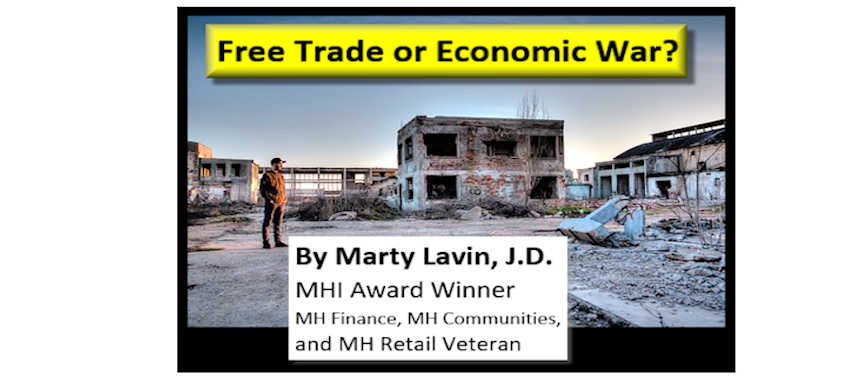
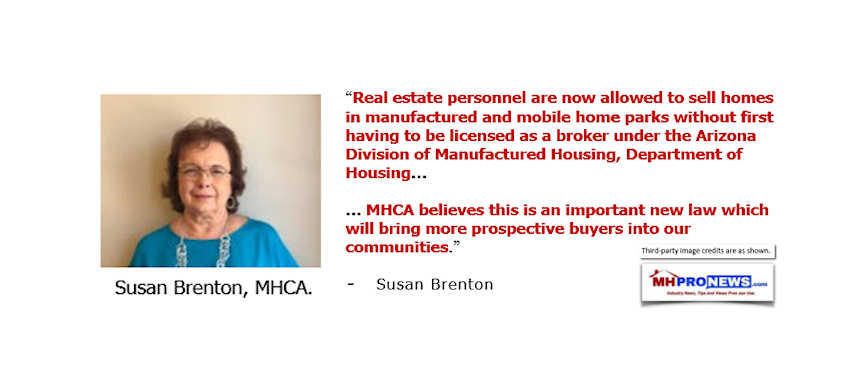
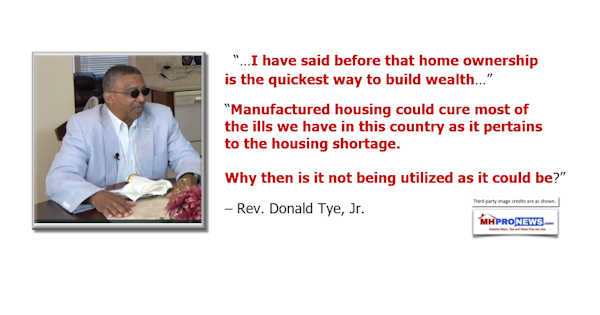
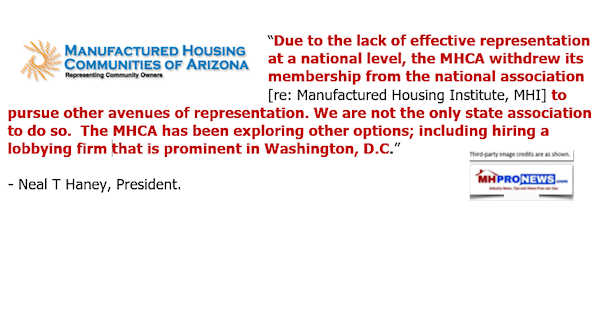
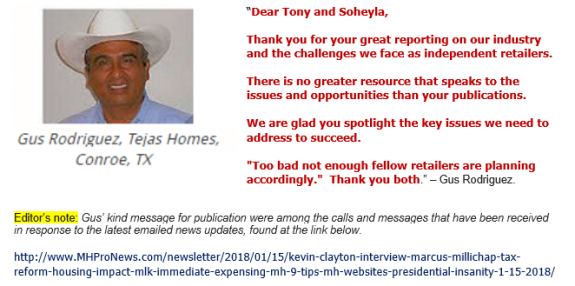
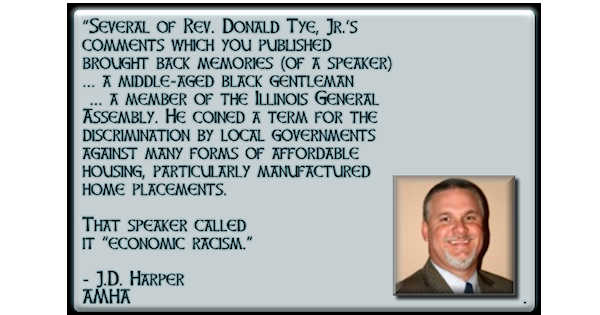
Karl Radde – TMHA, MHI, Southern Comfort Homes – Addressing Bryan City Leaders, Letter on Proposed Manufactured Home Ban
To All Concerned [Bryan City Officials, Others]: As the retail location referenced by Mr. Inderman, I would like to take a moment to address the …